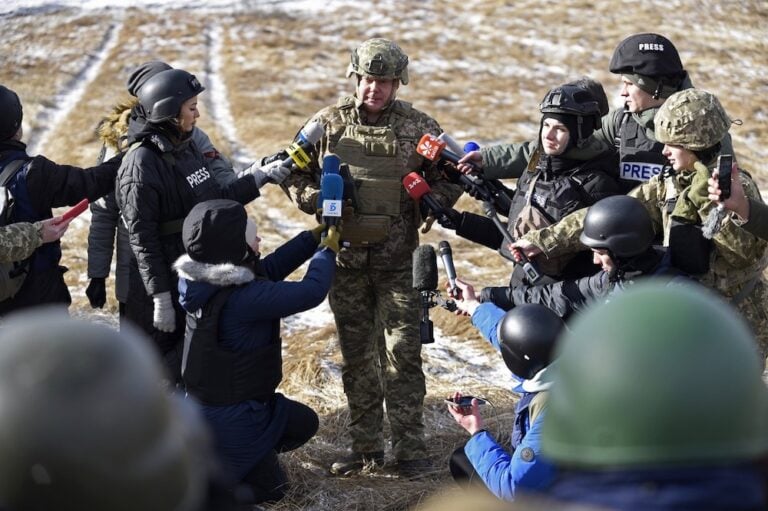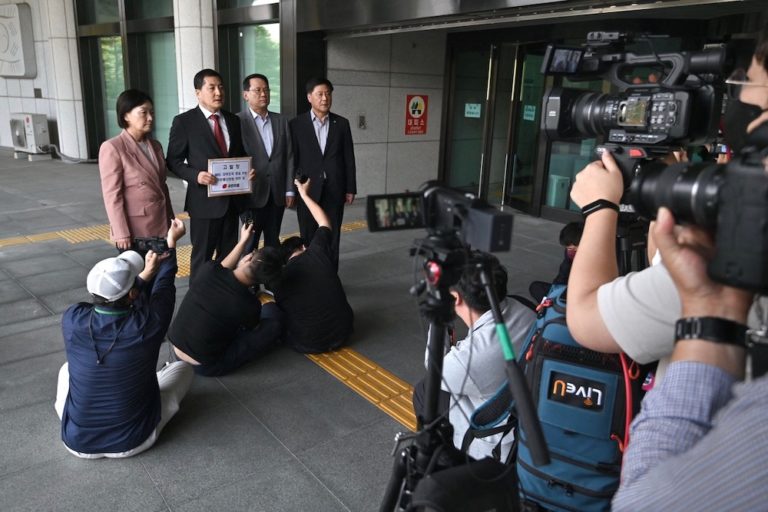(RSF/IFEX) – In a letter to South Korean Minister of Culture and Tourism Kim Han-Gill, RSF expressed its concern about the consequences of the media tax probe on information pluralism. The scale of the tax probe, which has concentrated mainly on media critical of the current government, does not bode well for the “press reforms” […]
(RSF/IFEX) – In a letter to South Korean Minister of Culture and Tourism Kim Han-Gill, RSF expressed its concern about the consequences of the media tax probe on information pluralism. The scale of the tax probe, which has concentrated mainly on media critical of the current government, does not bode well for the “press reforms” announced recently by President Kim Dae-jung. “Such a tax probe could represent a real threat to information pluralism on the eve of an election period”, noted Robert Ménard, RSF’s secretary-general. The press freedom organisation asked the minister to speak out in favour of press freedom, and condemned “all pressure on the media”.
According to information obtained by RSF, the government asked the National Tax Service to conduct a general audit of the country’s main media, starting in February 2001. Planned for a two-month period, this tax probe at first concerned some twenty public and private media outlets. More than 400 tax officials were mobilised to check the accounts of these media over the last five years. But, little by little, the officials concentrated on the newspapers most critical of President Kim Dae-jung’s government. For example, fifty tax officials audited the conservative daily “Chosun Ilbo”. According to a 19 March editorial in this daily, the National Tax Service extended the probe to the regional offices and some of the editorial staff. On 23 March, the “Chosun Ilbo” journalists’ union denounced the tax officials’ decision to check the editorial staff’s accounts, in what they consider to be a strong violation of their “right to privacy”.
On 1 March, the weekly “Sisa Journal” published some documents allegedly prepared by a ruling-party think tank regarding a strategy for controlling the media. According to these documents, criticism from some conservative newspapers such as “Chosun Ilbo”, “JoongAng Ilbo” and “Donga Ilbo”, “has reached dangerous levels”. The documents’ authors classified media outlets according to their attitude towards the government. They recommend attacking “head-on” these critical media, which were also accused of being linked to the interests of certain families and firms.
At the same time, the government asked the Fair Trade Commission to investigate the situation of fifteen media outlets, including some state-owned media, to determine whether there have been irregularities in terms of advertising sales and monopolistic positions.
Moreover, President Kim Dae-jung announced in January that he was thinking of proposing a large-scale “media reform”. At the same time, some members of his government accused some newspapers of spreading “biased information”. They said that the president was a victim of “unfair attacks”.


